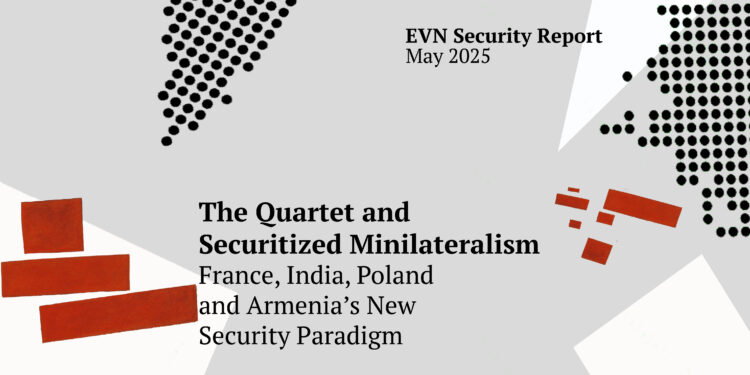EVN Security Report
Subversion and Electoral Interference: Russia and Armenia’s 2026 Elections
Drawing from Moldova’s recent experience, Armenia must brace for a coordinated and covert Kremlin strategy aimed at electoral interference and destabilizing its democracy ahead of the 2026 parliamentary elections. Nerses Kopalyan explains Russia’s evolving hybrid warfare tactics and “traceless manipulation” operations.
Aliyev’s Performative Gamble: The Draft Agreement on Peace
Aliyev’s unilateral declaration of a draft peace agreement was a calculated gamble to capture U.S. attention rather than a genuine step toward peace with Armenia. This strategy backfired, exposing Azerbaijan’s bad faith engagement, with Washington preferring the narrative of its strategic partner Armenia.
Towards an Early Warning System: Anticipating Threats and Preparing for Attacks
Armenia faces a complex security landscape, from immediate physical threats posed by Azerbaijan to multi-layered hybrid attacks. In this month’s security report, Nerses Kopalyan examines how Armenia is developing an advanced early warning system to shift from a reactive to a proactive defense strategy, leveraging information processing, intelligence, technology and strategic forecasting.
Why Aliyev Thinks He Has to Attack Armenia Soon
Ilham Aliyev considers the new regional balance of power his greatest geopolitical success and the preservation of this power disparity with Armenia his highest priority. As Armenia rearms and seeks to develop deterrence capacity, Aliyev deems this a threat to his grand strategy, thus heightening the probability of strategic strikes against Armenia.
EVN Security Report: November 2024
Looking at the emerging contours of the Trump Doctrine and its implications for the South Caucasus, Nerses Kopalyan examines competing policy orientations within Trump's incoming administration and how these will shape U.S. engagement with Armenia amid broader global and geopolitical priorities.
EVN Security Report: October 2024
Tracing decades of overreliance on Russia, systemic neglect of military modernization, and policy failures by successive Armenian administrations, Nerses Kopalyan presents a critical analysis of how Armenia’s security apparatus stood by as Azerbaijan became a regional military power.
EVN Security Report: September 2024
Armenia faces distinct security threats from Azerbaijan, Turkey, and Russia, with Russia posing the most complex and severe challenge through cyber operations. This month's security briefing explores the concept of subversion as a tenable risk-mitigation strategy against these threats.
EVN Security Report: August 2024
As the 2024 presidential elections approach, what will U.S. foreign policy hold for Armenia if Kamala Harris wins? Qualifying the body of information on Harris and her team's foreign policy orientations, Nerses Kopalyan provides an in-depth profile of how a Harris Administration will impact Armenia and the region.
EVN Security Report: July 2024
There has been extensive debate about Washington’s strategic policy goals and growing investment in Armenia's security architecture. To understand the strategic framework guiding this engagement, the concept of “defense diplomacy” is introduced in this month’s security report.
EVN Security Report: June 2024
A cursory review of public discourse and limited research on Armenia's security environment reveals a “levels of analysis” problem. This month’s security report introduces Regional Security Complex Theory (RSCT) to alleviate this serious analytical shortcoming.












